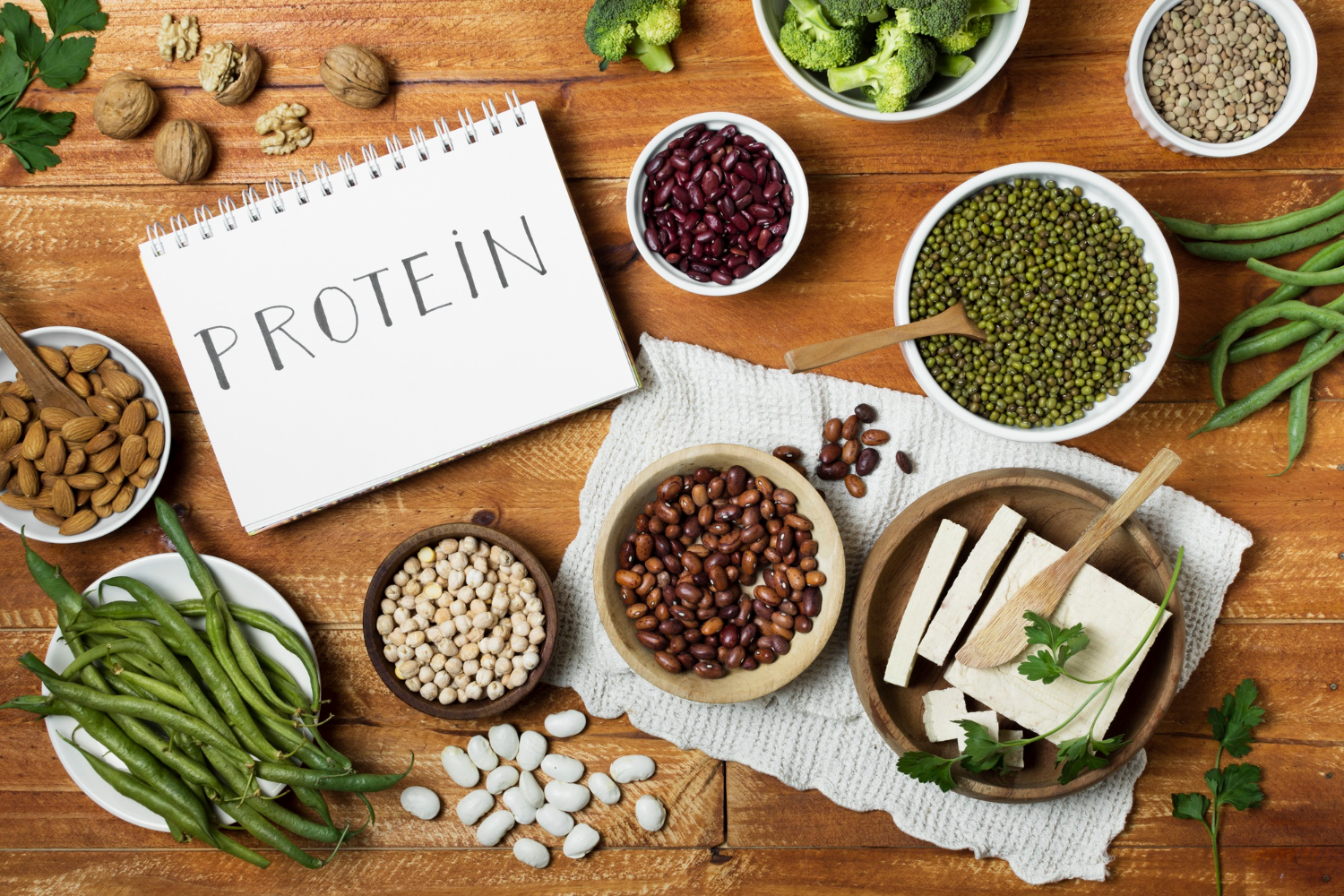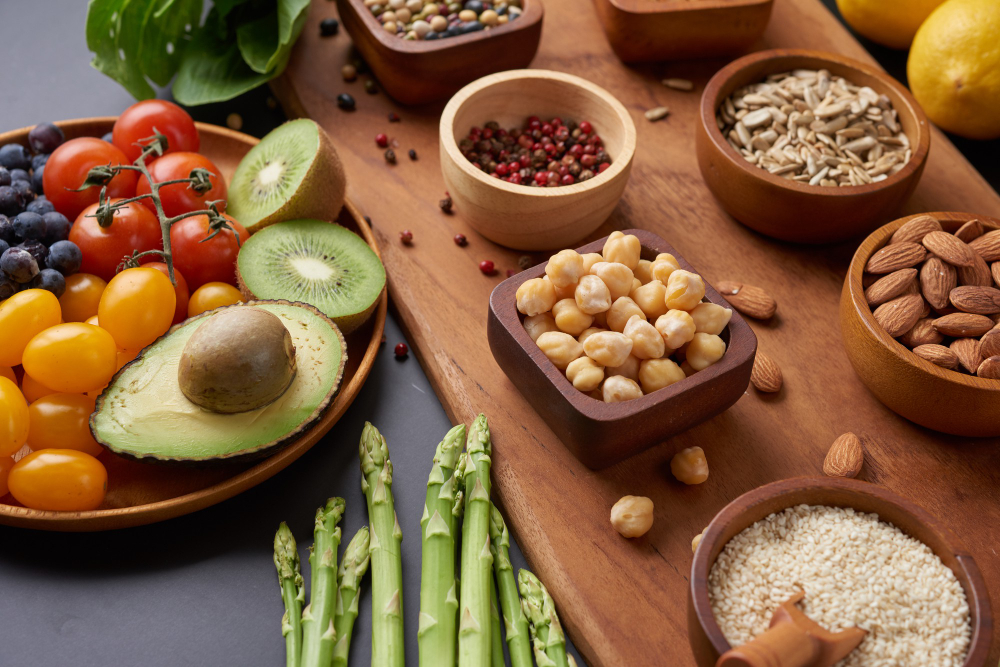Introduction to Plant-Based Myths
Understanding Plant-Based Diets
A plant-based diet focuses on foods derived from plants, including vegetables, grains, nuts, seeds, legumes, and fruits. While it doesn’t necessarily mean that someone is vegetarian or vegan, it means that the majority of what they eat comes from plant sources. Despite the growing popularity and scientific backing, there are numerous myths and misconceptions about plant-based diets.
The Importance of Debunking Myths
Debunking these myths is crucial for those considering or currently following a plant-based diet. Misinformation can lead to poor dietary choices, health concerns, and a lack of confidence in one’s nutritional path. This comprehensive guide aims to address and dispel the most common plant-based myths.
Myth 1: Plant-Based Diets Lack Protein
The Protein Debate
One of the most pervasive myths is that plant-based diets do not provide enough protein. Many people believe that meat and dairy are the only adequate sources of this essential nutrient. However, numerous plant-based foods are rich in protein, and it is entirely possible to meet protein needs without animal products.
High-Protein Plant Foods
Legumes, such as lentils, chickpeas, and black beans, are excellent sources of protein. Other high-protein plant foods include tofu, tempeh, edamame, quinoa, and various nuts and seeds. By incorporating a variety of these foods into their diet, individuals can easily meet their protein requirements.
Myth 2: Plant-Based Diets Are Nutrient Deficient
Nutritional Variety
Another common misconception is that plant-based diets are lacking in essential nutrients. Critics argue that without meat, dairy, and eggs, it is impossible to obtain sufficient vitamins and minerals. However, a well-planned plant-based diet can provide all necessary nutrients.
Key Nutrients in Plant-Based Diets
Key nutrients like iron, calcium, vitamin B12, and omega-3 fatty acids can be obtained from plant sources and fortified foods. For instance, dark leafy greens, fortified plant milks, nuts, seeds, and whole grains are all nutrient-dense options that can help prevent deficiencies.
Myth 3: Plant-Based Diets Are Expensive
Cost Comparison
Many people believe that eating a plant-based diet is more expensive than a diet that includes animal products. While certain plant-based products can be pricey, it is possible to eat a nutritious plant-based diet on a budget.
Affordable Plant-Based Foods
Staple foods like beans, rice, lentils, and seasonal fruits and vegetables are not only affordable but also packed with nutrients. Buying in bulk, meal planning, and cooking at home can further reduce costs and make plant-based eating accessible to everyone.
Myth 4: Plant-Based Diets Are Inconvenient
Convenience of Plant-Based Eating
There is a belief that plant-based diets are time-consuming and difficult to maintain, especially for those with busy lifestyles. However, with a little planning and preparation, plant-based eating can be convenient and straightforward.
Easy Plant-Based Meals
Quick and easy plant-based meals can include stir-fries, salads, grain bowls, and smoothies. Many plant-based recipes are simple and require minimal cooking time, making them ideal for busy individuals or families.
Myth 5: Plant-Based Diets Are Bland and Unappetizing
Flavorful Plant-Based Cooking
Some people think that plant-based diets are boring and lack flavor. This misconception likely stems from a lack of knowledge about plant-based cooking techniques and ingredients.
Enhancing Flavor with Spices and Herbs
Using a variety of spices, herbs, and flavorings can make plant-based meals delicious and satisfying. Additionally, experimenting with different cooking methods, such as roasting, grilling, and sautéing, can enhance the taste and texture of plant-based foods.
Myth 6: Plant-Based Diets Are Only for Weight Loss
Diverse Health Benefits
While plant-based diets are often associated with weight loss, they offer numerous other health benefits. These diets can improve heart health, reduce the risk of chronic diseases, and promote overall well-being.
Plant-Based Diets for All Body Types
Plant-based diets are suitable for individuals of all body types and fitness levels. Whether the goal is to lose weight, maintain weight, or gain muscle, a plant-based diet can be tailored to meet specific health and fitness goals.
Myth 7: Plant-Based Diets Are Not Suitable for Athletes
Athletic Performance on Plant-Based Diets
There is a misconception that athletes cannot thrive on plant-based diets due to insufficient protein and nutrients. However, many successful athletes follow plant-based diets and perform at the highest levels in their sports.
Plant-Based Athletes
Examples of plant-based athletes include tennis champion Venus Williams, ultra-endurance athlete Rich Roll, and NFL player Derrick Morgan. These athletes have demonstrated that plant-based diets can support strength, endurance, and recovery.
Myth 8: Plant-Based Diets Lead to Muscle Loss
Building Muscle on a Plant-Based Diet
Contrary to the myth that plant-based diets cause muscle loss, individuals can build and maintain muscle with the right nutrition and training. Protein is essential for muscle repair and growth, and there are plenty of plant-based protein sources available.
Protein-Rich Plant Foods
Incorporating protein-rich foods like beans, lentils, tofu, tempeh, quinoa, and nuts can support muscle growth and maintenance. Additionally, plant-based protein powders can provide an extra protein boost for those with higher needs.
Myth 9: Plant-Based Diets Are Lacking in Iron
Iron Sources in Plant-Based Diets
Iron deficiency is a common concern, but plant-based diets can provide sufficient iron through a variety of foods. Iron from plant sources is non-heme iron, which is less easily absorbed than heme iron from animal products, but absorption can be enhanced with certain practices.
Enhancing Iron Absorption
Consuming vitamin C-rich foods, such as citrus fruits, tomatoes, and bell peppers, alongside iron-rich foods can improve iron absorption. Additionally, cooking in cast iron cookware and avoiding tea or coffee with meals can help maximize iron intake.
Myth 10: Plant-Based Diets Are Difficult to Sustain
Sustainability of Plant-Based Diets
Another myth is that plant-based diets are hard to maintain long-term. However, with proper planning and a diverse range of foods, plant-based diets can be both enjoyable and sustainable.
Creating a Balanced Diet
A balanced plant-based diet includes a variety of fruits, vegetables, whole grains, legumes, nuts, and seeds. Experimenting with new recipes and foods can keep meals exciting and prevent dietary boredom.
Myth 11: Plant-Based Diets Are Only for Vegans
Flexibility of Plant-Based Diets
Plant-based diets are not exclusively for vegans. Many people incorporate more plant-based foods into their diets without completely eliminating animal products. This flexible approach can still provide numerous health benefits.
Plant-Based Flexitarianism
A flexitarian diet emphasizes plant-based foods while allowing for occasional meat and animal products. This approach can make transitioning to a plant-based diet easier and more sustainable for some individuals.
Myth 12: Plant-Based Diets Are Low in Calories
Caloric Density of Plant-Based Foods
Some believe that plant-based diets are inherently low in calories and may not provide enough energy. However, many plant-based foods are calorie-dense and can provide sufficient energy for daily activities and exercise.
High-Calorie Plant Foods
Nuts, seeds, avocados, and whole grains are examples of calorie-dense plant foods. Including these in meals and snacks can help ensure adequate calorie intake for energy and performance.
Myth 13: Plant-Based Diets Are Not Suitable for Children
Nutritional Needs of Children
There is a misconception that children cannot thrive on plant-based diets. However, with careful planning, plant-based diets can meet the nutritional needs of children and support their growth and development.
Plant-Based Meals for Kids
Providing a variety of nutrient-dense plant foods, including fruits, vegetables, legumes, whole grains, nuts, and seeds, can ensure that children receive adequate nutrition. Fortified foods and supplements can also help meet specific nutrient requirements.
Myth 14: Plant-Based Diets Are Not Environmentally Friendly
Environmental Impact of Plant-Based Diets
Some argue that plant-based diets are not as environmentally friendly as they are claimed to be. However, numerous studies have shown that plant-based diets generally have a lower environmental impact compared to diets high in animal products.
Reducing Carbon Footprint
Plant-based diets can reduce greenhouse gas emissions, conserve water, and decrease land use. Choosing locally grown, seasonal produce and reducing food waste can further enhance the environmental benefits of a plant-based diet.
Myth 15: Plant-Based Diets Are Time-Consuming to Prepare
Convenience of Plant-Based Cooking
Many people believe that preparing plant-based meals takes a lot of time. However, with meal planning and simple recipes, plant-based cooking can be quick and convenient.
Quick Plant-Based Recipes
There are many plant-based recipes that require minimal preparation and cooking time, such as salads, stir-fries, and grain bowls. Using pre-cut vegetables, canned beans, and frozen fruits can also save time in the kitchen.
Myth 16: Plant-Based Diets Are Not Satisfying
Satiety on a Plant-Based Diet
Some people think that plant-based meals are not filling and leave them feeling hungry. However, plant-based foods can be very satisfying when they include a balance of protein, fiber, and healthy fats.
Filling Plant-Based Meals
Meals that combine protein-rich foods, like beans and tofu, with fiber-rich vegetables and whole grains can provide long-lasting satiety. Adding healthy fats from sources like avocados, nuts, and seeds can also enhance satisfaction.
Myth 17: Plant-Based Diets Lack Flavor
Enhancing Flavor in Plant-Based Cooking
A common myth is that plant-based diets are bland and lack flavor. However, plant-based cooking can be full of vibrant and diverse flavors with the right ingredients and techniques.
Spices and Seasonings
Using a variety of spices, herbs, and seasonings can elevate the taste of plant-based dishes. Ingredients like garlic, ginger, turmeric, cumin, and fresh herbs can add depth and complexity to meals.
Myth 18: Plant-Based Diets Are Hard to Follow Socially
Navigating Social Situations
Some people believe that following a plant-based diet can be socially challenging, especially when dining out or attending social events. However, with a little preparation, it is possible to enjoy social situations while sticking to a plant-based diet.
Tips for Social Eating
When dining out, researching restaurant menus in advance and choosing plant-based-friendly establishments can make eating out easier. Bringing a plant-based dish to social gatherings can also ensure there are suitable options available.
Myth 19: Plant-Based Diets Are a Fad
Historical Context of Plant-Based Eating
Some people view plant-based diets as a passing trend. However, plant-based eating has a long history and is rooted in many cultures and traditions around the world.
Longevity of Plant-Based Diets
Plant-based diets have been followed for centuries in various forms, from Mediterranean and Asian diets to indigenous and religious practices. The growing body of scientific evidence supporting the health benefits of plant-based diets further suggests that they are here to stay.
Myth 20: Plant-Based Diets Are Only for Adults
Plant-Based Nutrition for All Ages
Another myth is that plant-based diets are only suitable for adults. However, with proper planning, individuals of all ages, including infants, children, and the elderly, can thrive on a plant-based diet.
Nutritional Considerations for Different Life Stages
Each life stage has specific nutritional needs that can be met with a plant-based diet. For example, infants may require breast milk or formula, while older adults may benefit from fortified foods and supplements to meet their nutrient needs.
Key Points to Remember
- Protein Abundance: Plant-based diets can provide sufficient protein through a variety of foods like legumes, nuts, and seeds.
- Nutrient-Dense Options: A well-planned plant-based diet can meet all nutritional needs, including essential vitamins and minerals.
- Cost-Effective Choices: Plant-based diets can be affordable with budget-friendly staples like beans, lentils, and seasonal produce.
- Convenient Meals: Plant-based eating can be convenient with simple and quick recipes that fit busy lifestyles.
- Flavorful Cooking: Plant-based meals can be delicious and satisfying with the use of spices, herbs, and creative cooking techniques.
FAQs
- Can you get enough protein on a plant-based diet?
- Yes, by including a variety of protein-rich foods such as legumes, nuts, seeds, and tofu, you can meet your protein needs on a plant-based diet.
- Are plant-based diets nutritionally complete?
- A well-planned plant-based diet can provide all necessary nutrients, including vitamins and minerals, often through whole foods and fortified products.
- Is it expensive to follow a plant-based diet?
- Plant-based diets can be budget-friendly, especially when focusing on affordable staples like beans, lentils, rice, and seasonal vegetables.
- Do plant-based diets lack flavor?
- Plant-based diets can be full of flavor by using a variety of spices, herbs, and creative cooking techniques to enhance the taste of meals.
- Can athletes thrive on a plant-based diet?
- Many athletes successfully follow plant-based diets and achieve high performance by focusing on nutrient-dense foods and proper meal planning.
- Are plant-based diets suitable for children?
- With careful planning, plant-based diets can meet the nutritional needs of children and support their growth and development.
- Do plant-based diets cause muscle loss?
- Plant-based diets can support muscle growth and maintenance with adequate protein intake from a variety of plant-based sources.
- Is it difficult to eat plant-based in social situations?
- With preparation and flexibility, it is possible to enjoy social situations while following a plant-based diet by choosing suitable options and bringing plant-based dishes.
- Are plant-based diets just a trend?
- Plant-based diets have a long history and are supported by growing scientific evidence for their health benefits, suggesting they are not just a passing trend.
- Can older adults follow a plant-based diet?
- Yes, older adults can thrive on a plant-based diet with attention to nutrient needs and the inclusion of fortified foods and supplements as necessary.



